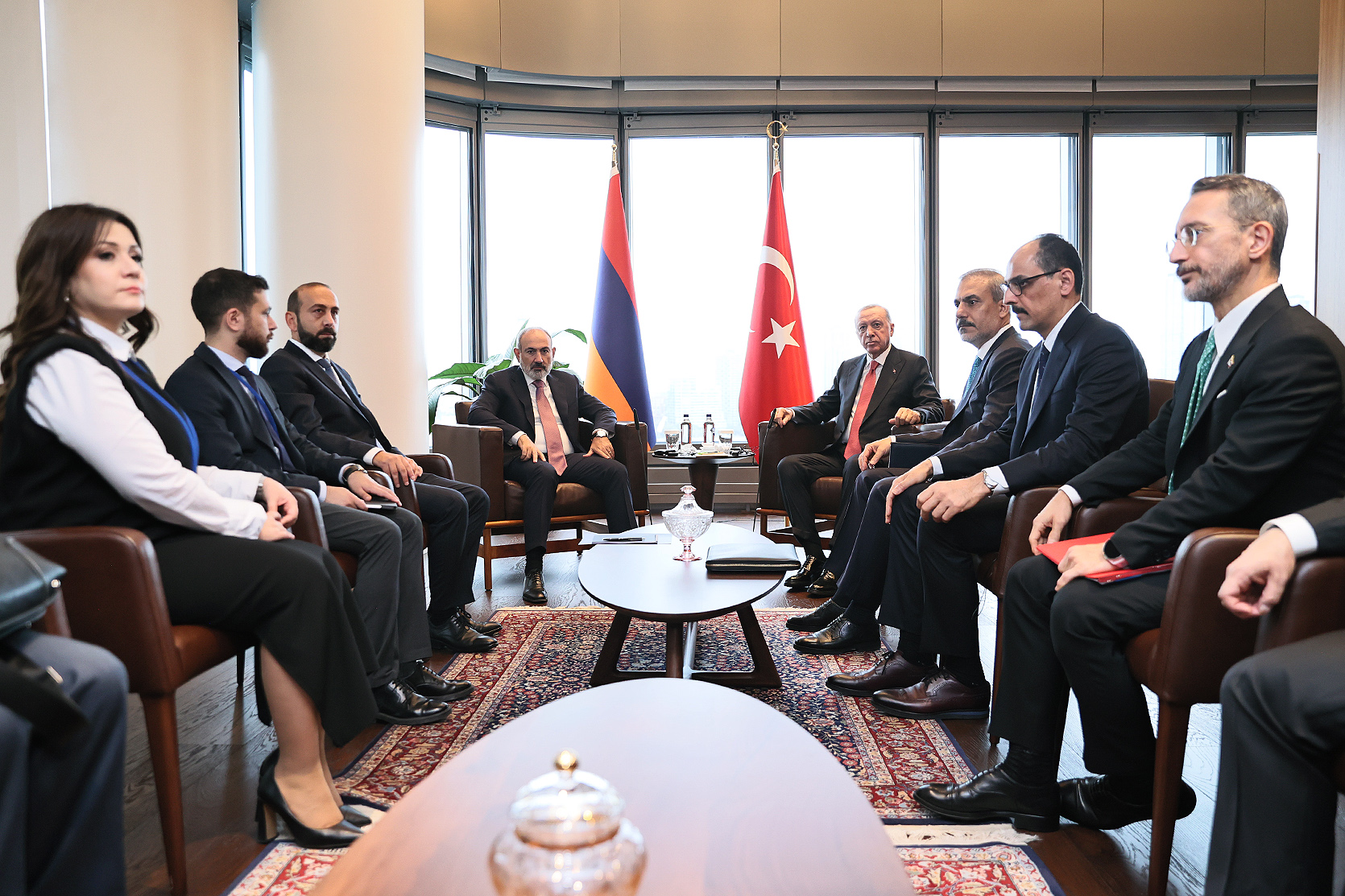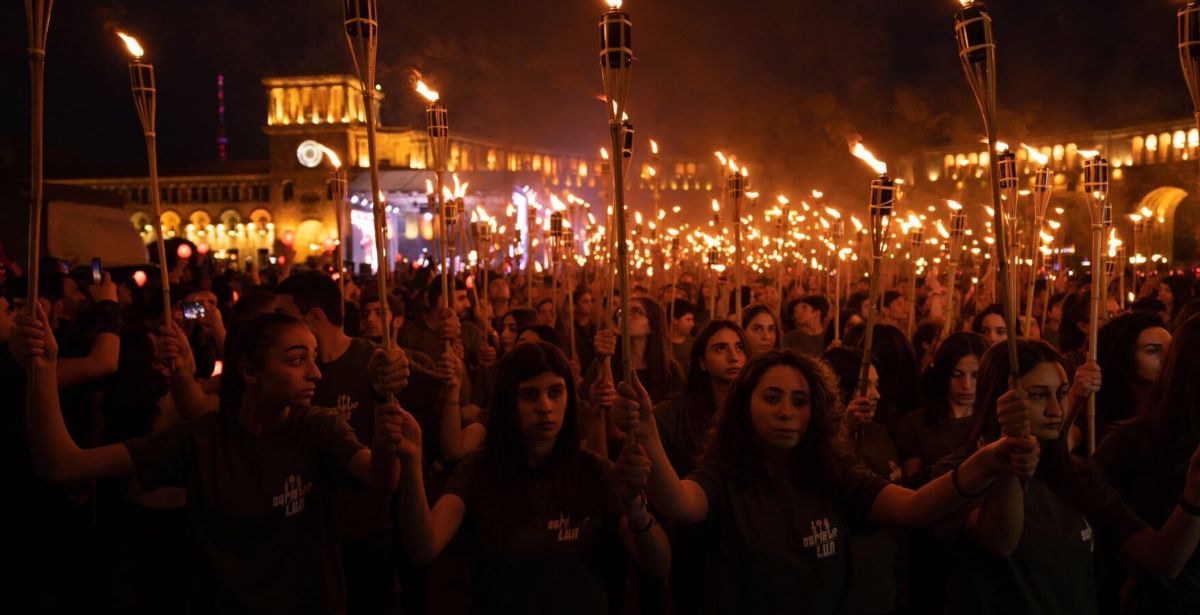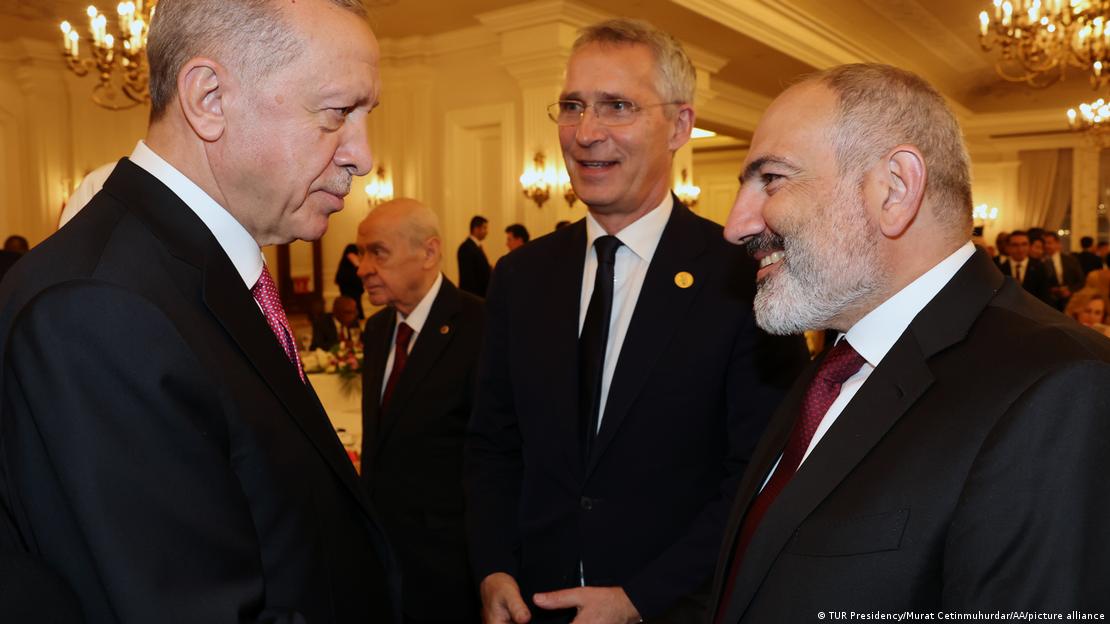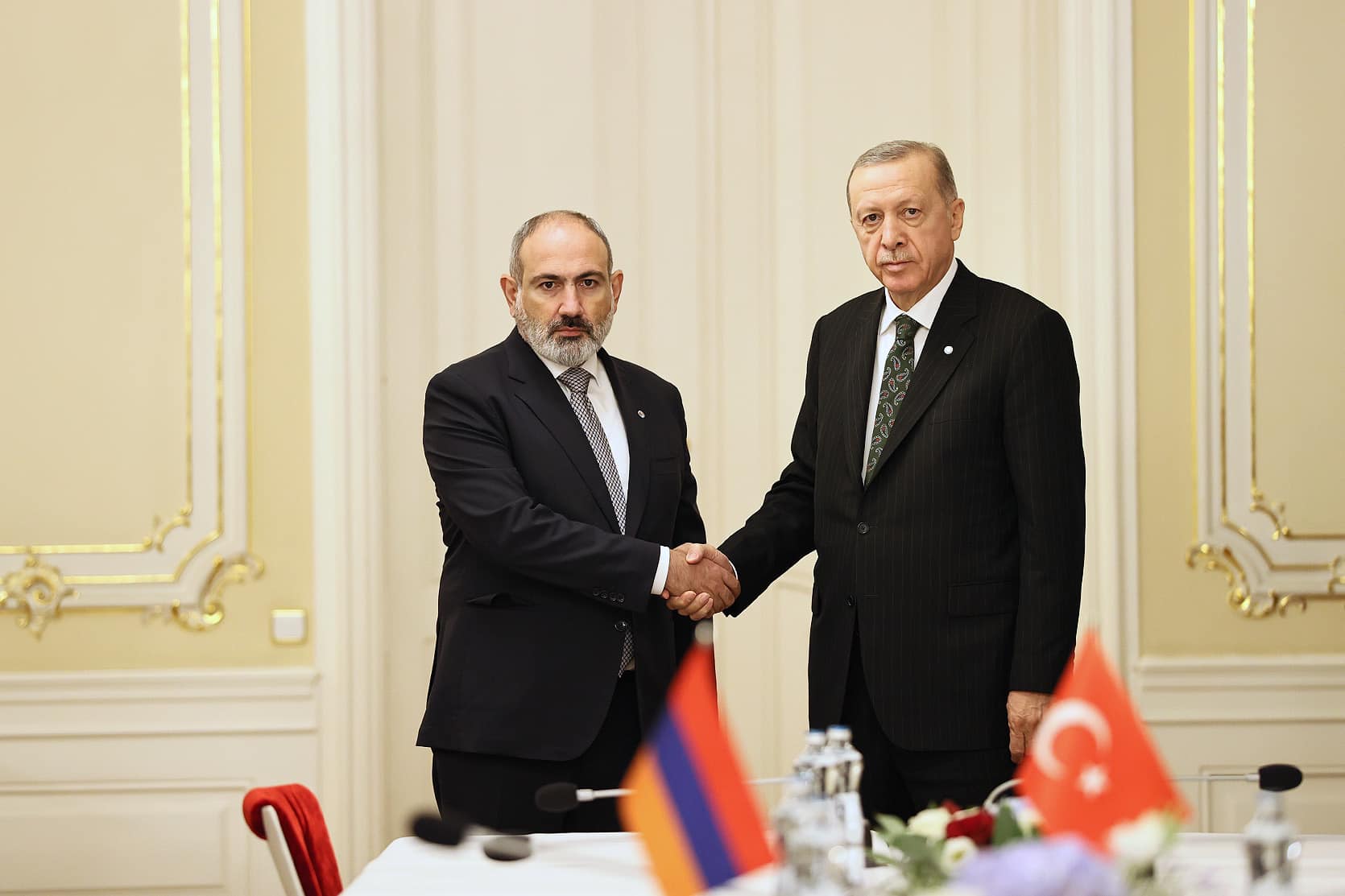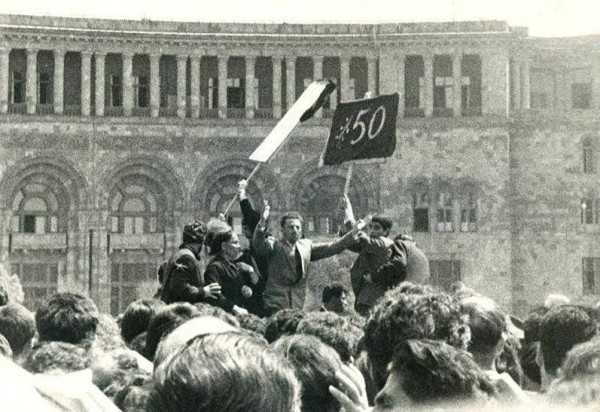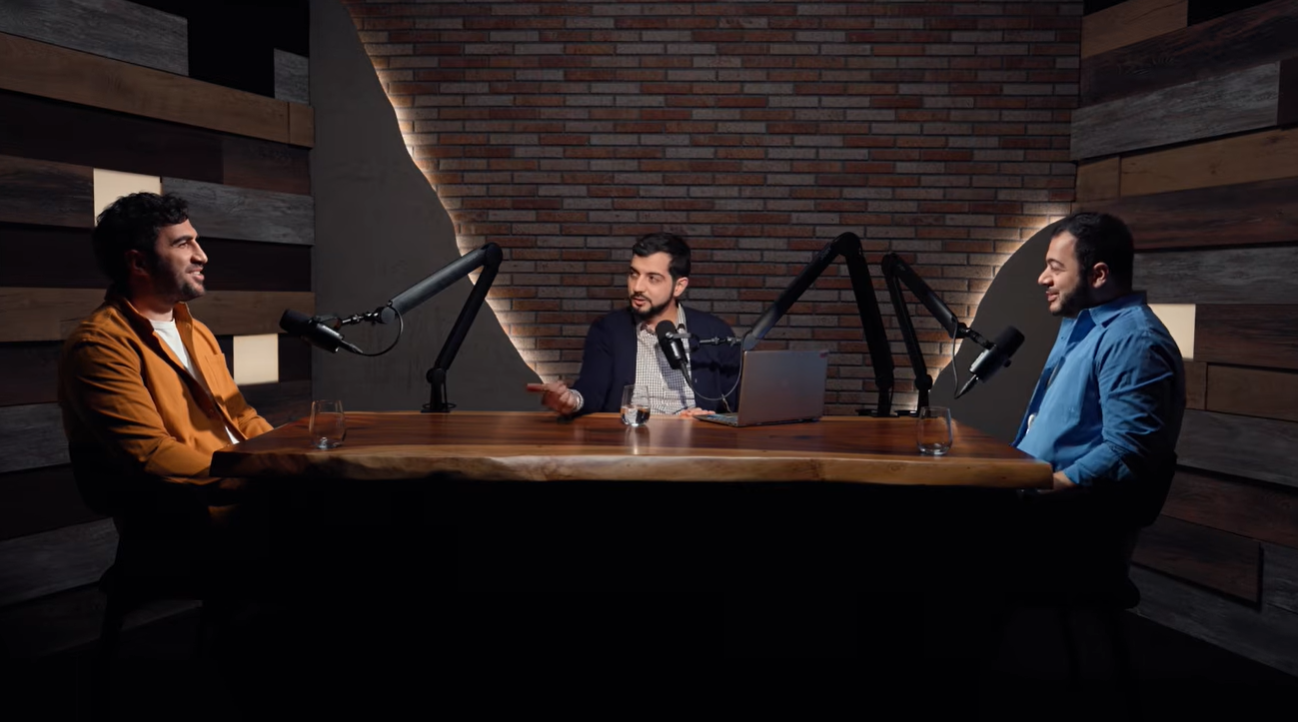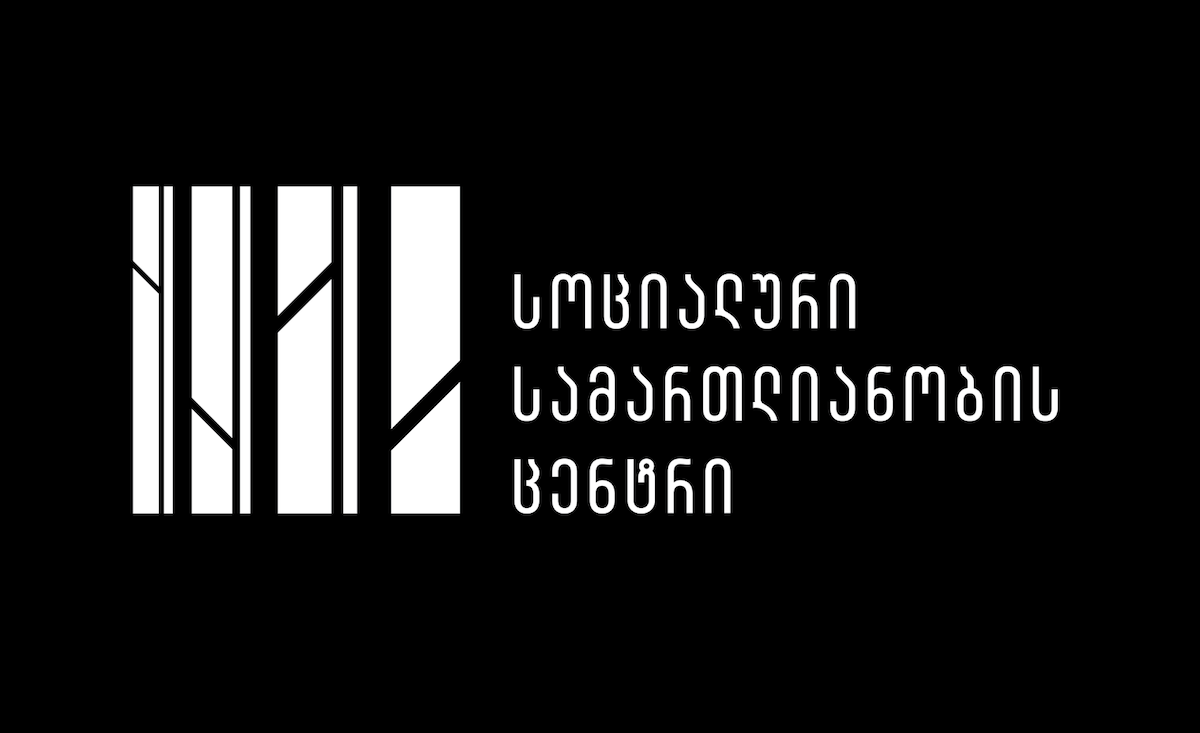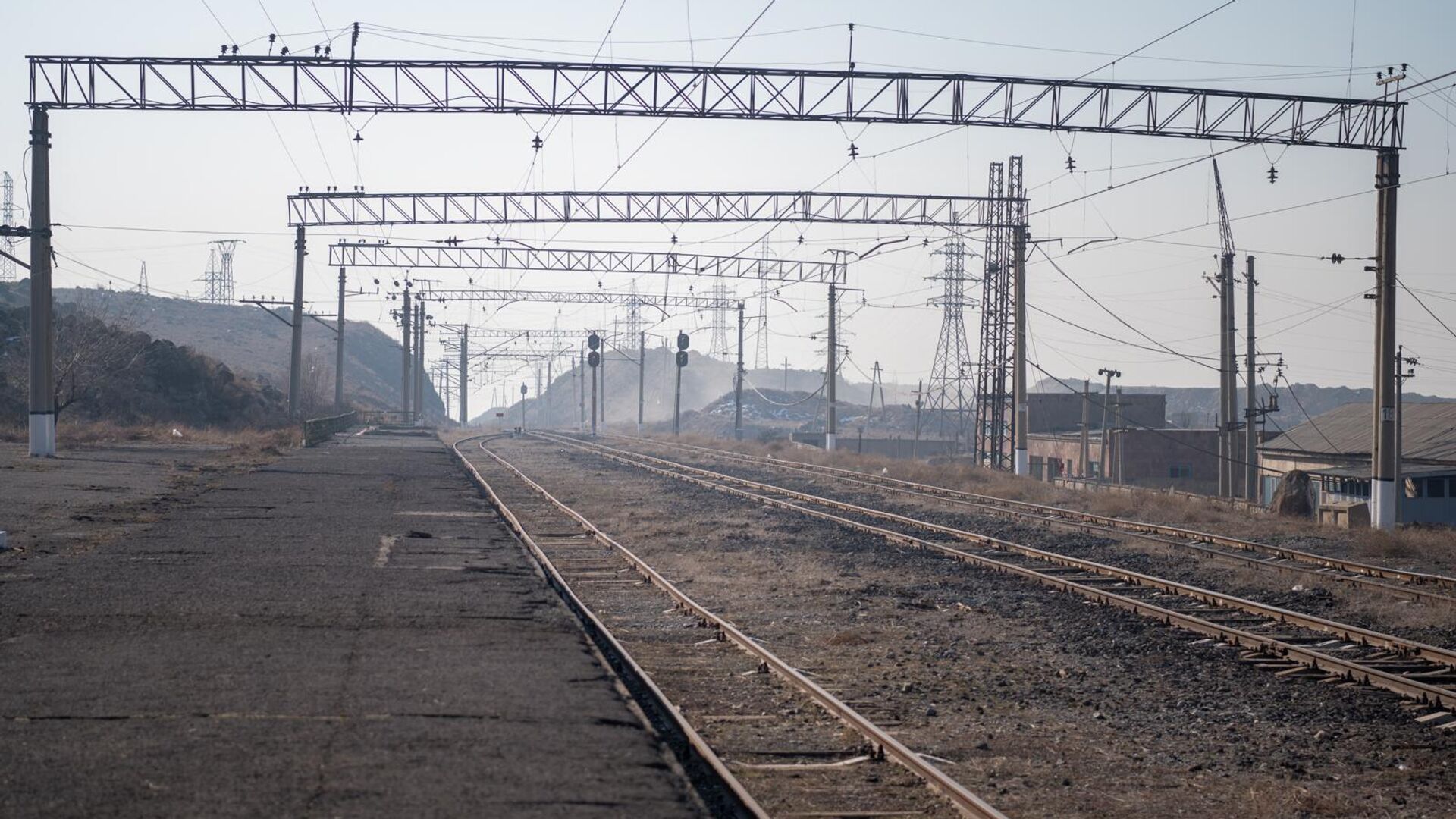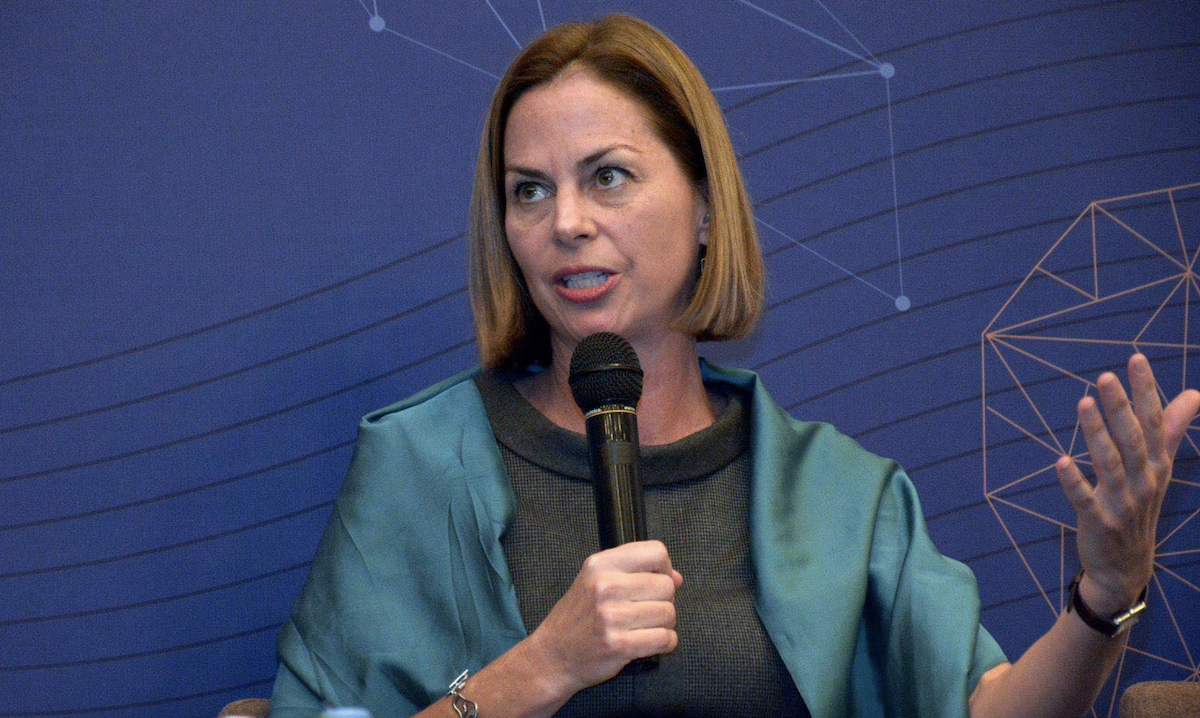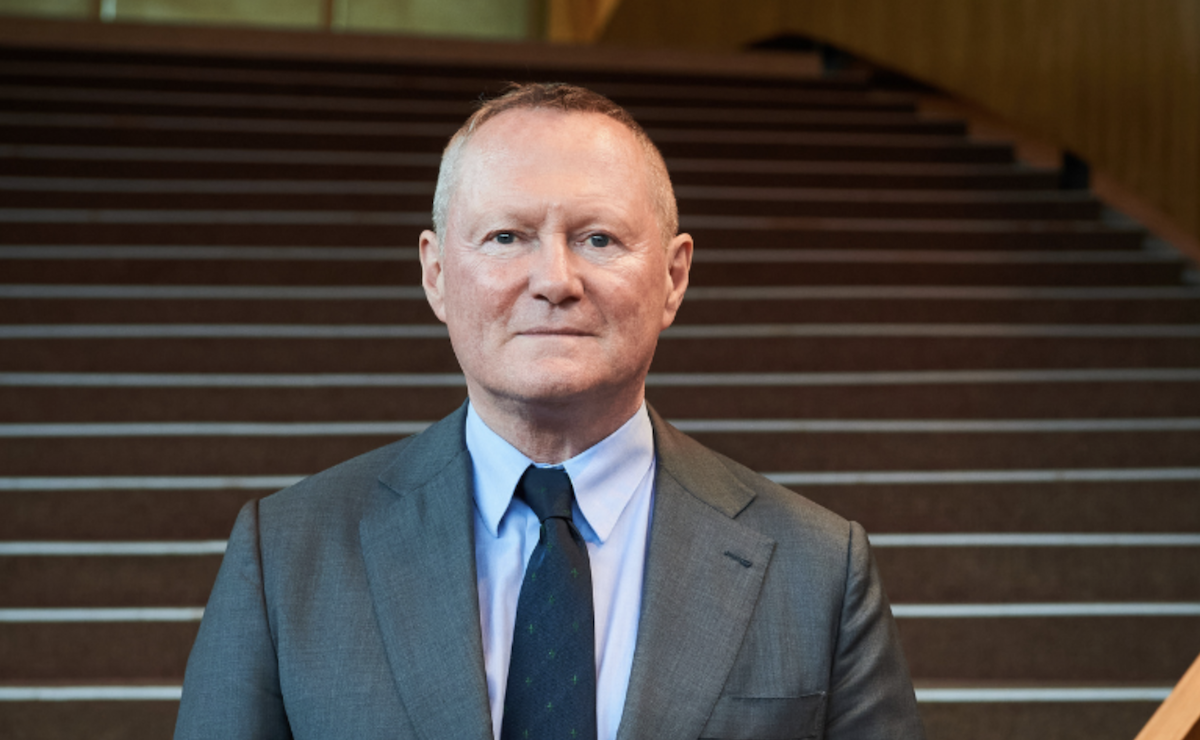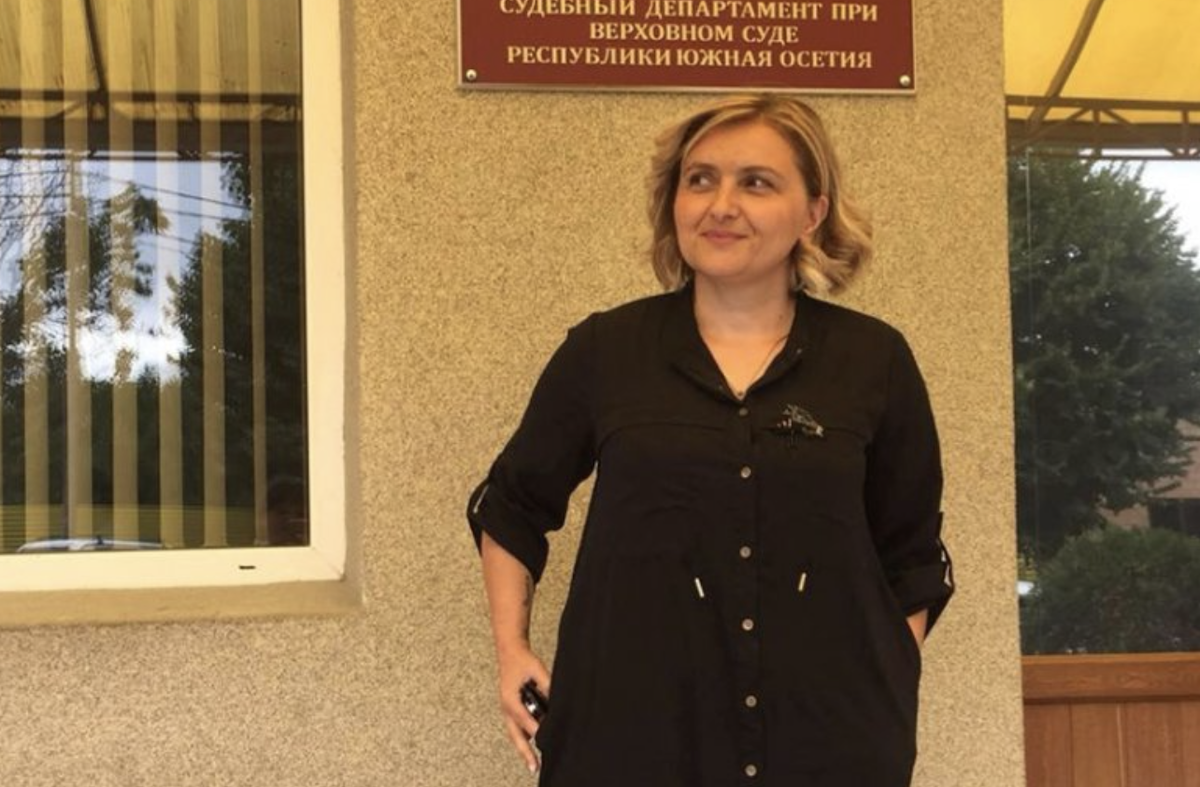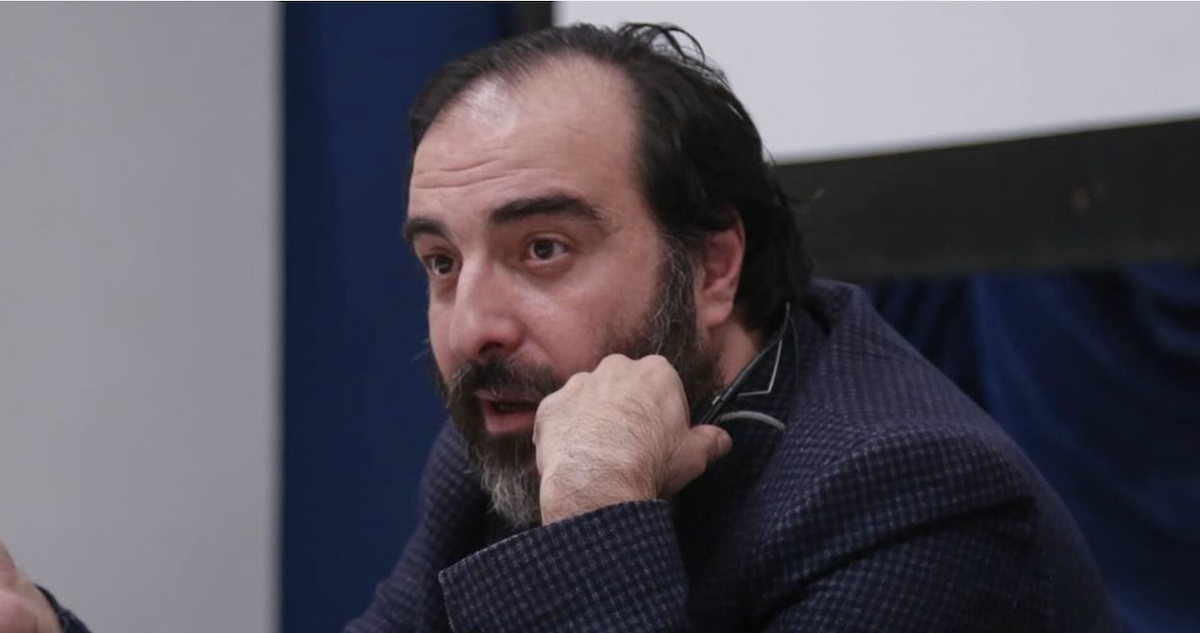110th anniversary of the Armenian Genocide: 'International recognition is not among government’s priorities'
110th anniversary of the Armenian Genocide
24 April marks the Day of Remembrance for the victims of the Armenian Genocide, the mass killings that took place in Ottoman Turkey. Today, Armenians around the world are holding commemorative events dedicated to the 110th anniversary of the tragedy. As a result of the killings and mass deportations, 1.5 million Armenians lost their lives. Armenia, along with several Western countries and organisations, officially recognises these events as genocide. Turkey, however, categorically rejects this term.
Turkey officially recognised the independence of the Republic of Armenia in 1991, yet diplomatic relations between the two countries have not been established.
Following the 2020 Nagorno-Karabakh war, another attempt at normalising Armenian-Turkish relations began, but tangible progress has yet to be seen. Ankara continues to tie this process to the Armenian-Azerbaijani settlement.
Both Armenia and Turkey declare that the normalisation process is taking place without preconditions. However, the shift in Yerevan’s stance on the issue of international recognition of the genocide has raised doubts within Armenian society about the sincerity of these claims. Notably, Prime Minister Nikol Pashinyan and Foreign Minister Ararat Mirzoyan have recently stated that international recognition of the Armenian Genocide is no longer a foreign policy priority for Armenia.
A significant portion of society considers this new position of the ruling team unacceptable.
Political commentator Hakob Badalyan believes that talk of normalisation without preconditions is propaganda. He is convinced that Yerevan’s changing stance reflects pressure from Ankara.
According to the analyst, Turkey considers it “beneath its stature” to put forward direct preconditions to Yerevan. Instead, such demands are voiced by Baku. Badalyan argues that the first item on the list of demands delegated by Turkey to Azerbaijan is a change to Armenia’s constitution, which currently includes a reference to the Declaration of Independence — a document that mentions international recognition of the Armenian Genocide.
“Although Armenia and Turkey are not equals in terms of political weight, the issue of genocide recognition, in some sense, gives Armenia agency and subjecthood in relation to Turkey. This is perhaps Armenia’s last trump card. The Nagorno-Karabakh issue, once a similar card, was eliminated as a result of aggression. Now Ankara is trying to remove the genocide issue from the agenda, effectively erasing the last glimmer of Armenia’s international subjecthood,” he emphasised.
- ‘There’s a chance to open new era in Caucasus’ – Armenian Foreign Minister at Antalya forum
- Armenia–Turkey border opens for 10 days – what’s next?
- ‘Unprecedented case and format’: Pashinyan’s interview with Turkish journalists
Is Turkey also demanding changes to Armenia’s constitution?
At the start of 2024, Armenia’s Prime Minister announced that the country needs a new constitution. Previously, the government had only discussed amending the existing one. Authorities insist that constitutional reform is a domestic matter and a long-standing internal goal.
Meanwhile, Baku continues to claim that Armenia’s current constitution is the main obstacle to signing a peace agreement. The sticking point, it says, is a line in Armenia’s Declaration of Independence mentioning the “reunification of the Armenian SSR and Nagorno-Karabakh.” This is viewed as a territorial claim against Azerbaijan.
The same declaration also contains the statement: “The Republic of Armenia supports international recognition of the 1915 Armenian Genocide in Ottoman Turkey and Western Armenia.”
One year after the 2020 war, Azerbaijan’s president told Turkey’s Anadolu Agency that Armenia must revise its constitution, as it contains territorial claims against Turkey.
However, Ankara has not openly joined Baku’s demand for constitutional change. Turkey’s special envoy for normalisation talks with Armenia, Serdar Kılıç, recently stated:
“Azerbaijan is demanding constitutional amendments from Armenia. The Armenian authorities have already said they also want to amend the constitution. This is Armenia’s internal affair. The Armenian people and institutions will decide how and when this process will take place.”
Armenia’s parliamentary opposition believes there is no public demand for a new constitution. Opposition parties argue that the government is “aligning the constitution with the demands of Azerbaijan and Turkey.” The ruling party counters that the opposition “sees Turkey and Azerbaijan behind every decision, even where that’s impossible.”
A new constitution in Armenia can only be adopted following a nationwide referendum.
Members of the Constitutional Reform Council have repeatedly told journalists that the issue of the Declaration of Independence is not under discussion.
Yet, Prime Minister Nikol Pashinyan recently said he personally believes the new constitution should not include a reference to the Declaration of Independence:
“But of course, this will be for the Armenian people to decide. Political forces are presenting arguments both for and against. That is my political position.”
Armenian PM urges ‘understanding of what happened and why’
“We must also return to the history of the Armenian Genocide. We need to understand what happened and why it happened. How did we perceive it, through whom did we perceive it? How is it that in 1939 there was no discourse on the Armenian Genocide, and by 1950 it became a topic?” Prime Minister Nikol Pashinyan said in late January during a meeting with the Armenian community in Switzerland.
Following the statement, former foreign ministers accused him of “starting a process of denial,” while the opposition said he was “serving a Turkish agenda.” Analysts said the Prime Minister was raising questions that genocide studies had long since answered.
“It’s like someone saying today that we should reconsider Newton’s laws to determine whether mechanics really works that way,” said genocide expert Suren Manukyan.
He believes the Prime Minister was hinting that the Soviet Union invented the agenda of recognising the Armenian Genocide. But Manukyan reminds us that this was a banned subject in the USSR and was only allowed to be mentioned after Stalin’s death.
The Lemkin Institute for Genocide Prevention called Pashinyan’s remarks dangerous — especially amid shifting geopolitics and threats to Armenia’s sovereignty:
“His meaningless remarks disregard decades of historical research by Turkish, German, British, American, and Armenian scholars, undermine the ongoing struggle for justice for the victims of the Armenian Genocide, and create a dangerous geopolitical dynamic — especially in the context of the recent genocide of Artsakh Armenians committed by Azerbaijan and the continued threats to Armenia.”
As a result, Pashinyan was forced to clarify his position. He stated that he had not questioned the fact of the genocide, but merely proposed a discussion of the frameworks through which it is perceived:
“Genocide denial is a criminal offence in Armenia. The fact of the genocide is undeniable and irrefutable.”
Shift in foreign policy priorities
In October last year, Foreign Minister Ararat Mirzoyan stated that the recognition of the Armenian Genocide is no longer a top priority for Armenia:
“Studying the tragic events, the Armenian Genocide, or making it the number one priority is not on the agenda of the Ministry of Foreign Affairs. The ministry’s top priority is ensuring peace and stability around Armenia.”
In March 2025, Prime Minister Nikol Pashinyan made a similar statement in an interview with Turkish journalists:
“Our official position is that international recognition of the Armenian Genocide is not currently among our foreign policy priorities. That is the official wording.”
Pashinyan speaks of “large-scale tragedy”
In his recent addresses to the nation on Armenian Genocide Remembrance Day, Prime Minister Nikol Pashinyan has stopped referring to the need for international recognition. The last such mention came in his 2022 message:
“The agenda of international recognition of the Armenian Genocide should serve to strengthen Armenia’s system of security guarantees.”
Last year, Pashinyan described what happened as a “vast tragedy.” He said the Armenian people, lacking statehood at the time, became victims of geopolitical intrigues and false promises. In his view, the tragedy caused a “spiritual trauma” for Armenians:
“Now, as a state recognised by the international community, we often approach our relations and competition with other nations while still in a state of spiritual trauma. That is why we sometimes fail to distinguish properly between realities and factors, historical processes and forecasted horizons. Perhaps this is also why we continue to experience new shocks, reliving the trauma of the Armenian Genocide as both legacy and tradition.”
The Lemkin Institute also criticised this address, accusing Armenia’s prime minister of engaging in “covert genocide denial”:
“Instead of holding the leadership of the Ottoman Empire during the First World War accountable for the genocide, Pashinyan shifts the focus onto Armenians themselves — their supposed inability to grasp the political landscape of the time. […] He appears to suggest that Armenians were to blame for the genocide due to their misreading of the geopolitical situation.”
Expert commentary
Political analyst Hakob Badalyan links Yerevan’s shift on the genocide issue to Armenia’s defeat in the 2020 Nagorno-Karabakh war and its aftermath:
“The regional status quo has changed, the geopolitical environment has shifted. Armenia was defeated and lost Artsakh. Turkey played a significant and direct role in all of this. The regional security system has collapsed. In essence, Armenia no longer has guarantees.”
He believes the authorities are acting based on this new reality, taking Turkey’s role into account. There are no longer mechanisms in international relations that effectively restrain military aggression.
Asked why Pashinyan is now calling for a rethinking of history, when in 2021 he directly blamed the Young Turk government for “horrific crimes,” Badalyan replied:
“In April 2021, the Armenian-Turkish normalisation process had not yet begun. At the time, it appears that official Yerevan expected events to unfold within the framework of the 9 November statement [on the ceasefire in Karabakh brokered by Russia]. It was likely assumed that Russia would fully enforce the terms of that agreement, and there would be no need to change rhetoric toward Turkey.”
The analyst recalled that the Armenian-Turkish process entered a substantive phase in January 2022, when the first meeting of special envoys from Armenia and Turkey was held in Russia.
Since 2022, the global context has shifted — the Russia-Ukraine war broke out, and tensions with the West deepened.
Badalyan does not see the tactical de-emphasis on international recognition of the Armenian Genocide as inherently problematic or fatal:
“The problem isn’t in that. The problem lies in the approaches and positions being expressed on this issue: why it happened, whether the genocide question was used as a tool of influence over us, and so on. It is the circulation of these narratives at the level of the country’s highest leadership that is problematic.”
He stresses that when such narratives are voiced by the leadership, they create “a legitimised environment for the advancement of Turkish denial”:
“What’s more, it’s dangerous. The danger lies here: if we give up our trump cards — the key elements of our statehood — in a context where our overall capacity is already limited, we are losing opportunities. As a result, other actors in our neighbourhood will gain even greater influence over existentially important issues.”
He has no doubt that Yerevan’s statements are the result of, if not direct, then indirect pressure from Turkey.
“This is blackmail or bargaining. In both cases, the Turkish side is imposing its agenda on Armenia — threatening the country’s security, promising to create political or other problems,” he said. The analyst believes these threats are connected to both the Armenian-Turkish normalisation process and the Armenian-Azerbaijani negotiations, “since Azerbaijan is part of Turkey’s toolkit.”










